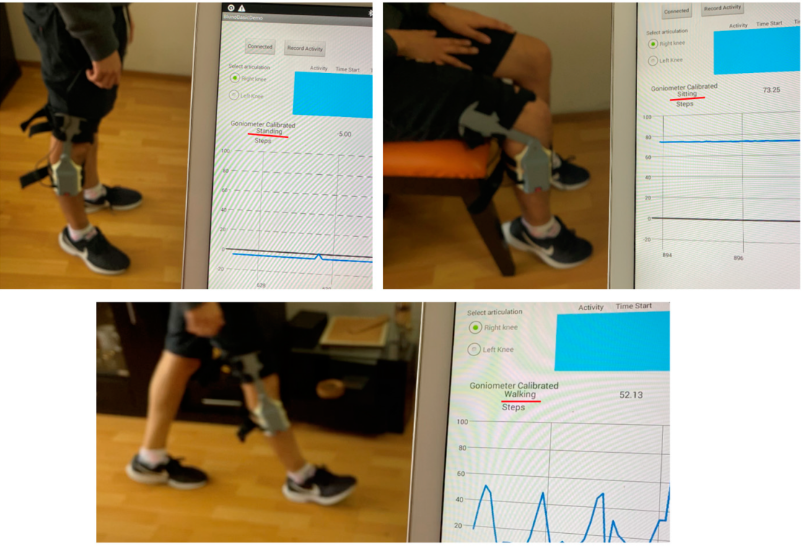Wearable technology has been developed in recent years to monitor biomechanical variables in less restricted environments and in a more affordable way than optical motion capture systems. This paper proposes the development of a 3D printed knee wearable goniometer that uses a Hall-effect sensor to measure the knee flexion angle, which works with a mobile app that shows the angle in real-time as well as the activity the user is performing (standing, sitting, or walking). Detection of the activity is done through an algorithm that uses the knee angle and angular speeds as inputs. The measurements of the wearable are compared with a commercial goniometer, and, with the Aktos-t system, a commercial motion capture system based on inertial sensors, at three speeds of gait (4.0 km/h, 4.5 km/h, and 5.0 km/h) in nine participants. Specifically, the four differences between maximum and minimum peaks in the gait cycle, starting with heel-strike, were compared by using the mean absolute error, which was between 2.46 and 12.49 on average. In addition, the algorithm was able to predict the three activities during online testing in one participant and detected on average 94.66% of the gait cycles performed by the participants during offline testing.
Autor(es):BRYAN JOEL RIVERA CALAGUA (Autor); CONSUELO CORAZÓN CANO GALLARDO (Autor); ABRAHAM ISRAEL LUIS PEÑA (Autor); DANTE ANGEL ELIAS GIORDANO (Autor).
Año: 2022
Título de la revista: Sensors
Ciudad: Basilea, Suiza
Volumen: 763
Número: 3
ISSN: 1424-8220
Url: https://www.mdpi.com/1424-8220/22/3/763

